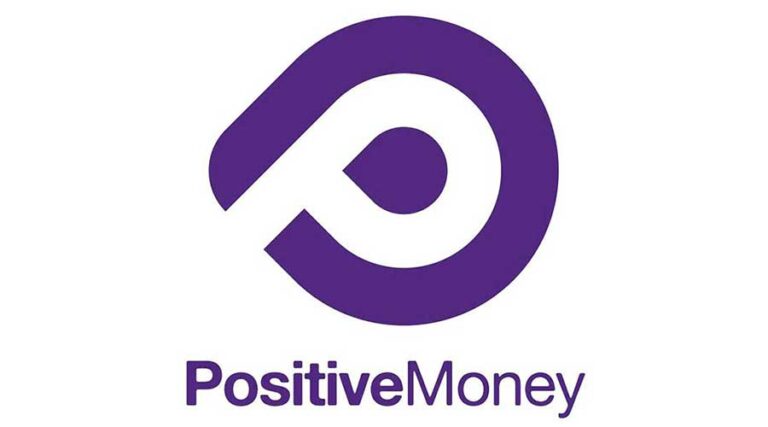Positive Money bills itself as “a simple solution to the debt crisis.” At first glance, it may seem like they have a good point to make, but on closer inspection, there's nothing there.
Positive Money says it wants three things to happen:
1. Make banks ask our permission before gambling with our money.
Positive Money suggests banks offer two main types of accounts: “bomb-proof” safe accounts, which cannot be lent to third parties and money can be withdrawn quickly, and “investment accounts”, where customers can choose to invest their money in exchange for interest payments. This “simple change” would give them “absolute protection” that would prevent them from having to bail out other banks, Positive Money says.
2. Banks should tell us how to spend our money.
Positive Money argues that we should have the right to tell banks how to invest our money. This right would place limits on what banks can do with our money, prevent them from gambling on financial markets without our consent, and allow us to divest from certain areas, such as the arms trade.
3. Bankers should be stripped of their power to “print” money and the newly created money should be used for the public good.
Positive Money correctly points out the fact that commercial banks are currently using fractional reserve banking to create new money. They correctly point out that this is not a good thing. They argue that bankers have an incentive to create as much money as possible in order to pay their bonuses and fees.
But they also argue that politicians cannot be put in charge of generating money because, they say, we would all be receiving cheques for £1,000 as bribes just before the election.
Positive Money therefore argues that this responsibility should be taken away from everyone and instead placed on the Bank of England's Monetary Policy Committee, a body that is supposed to be “independent, accountable and transparent”.
That's it?
It is hard to understand how Positive Money sees these as solutions. They do not propose any fundamental change at all. Far from preventing bailouts of banks, the first two proposals merely offer banks an alternative marketing strategy to sell their speculative activities in a new way. People will not stop saving, and they will not put their savings in “bomb-proof” accounts with zero interest rates.
But the most nonsensical proposal here is to hand over responsibility for currency creation to the bankers' bank, the Bank of England.
Independence and accountability of the Bank of England
The Bank of England is indeed independent, despite being 100% owned by the state. The bank's shares are held by lawyers for the Treasury. But the bank is operationally completely independent from the government, and has no oversight or accountability beyond the nominal requirement to keep inflation below 2%. If inflation exceeds 2%, the only sanction the government can currently take is to demand a letter from the governor explaining why he's being such a naughty boy.
It may come as a surprise to many that the “Bank of England” has many clients other than the UK Government. The Bank 100% owns a subsidiary “Bank of England Nominees Limited”, which is a nominee company and does not trade, but holds financial “assets” on behalf of the Bank's clients. The Queen's financial assets are held by BOEN, but so are the assets of other Heads of State, private bankers, and other governments.
The purpose of a nominee company is to hide trading activity. For example, say the Queen wants to sell her shares in M&S (if she holds them). When that transaction takes place, the owner will be deemed to be BOEN and not the Queen, and the trading activity will be hidden.
Currently, the public has no way of knowing who the banks' customers are, what services the banks provide to them, or what assets they hold. This is just one of many exceptions banks are allowed under the Freedom of Information Act. So banks that are supposedly loyal to the public may actually be more loyal to a foreign power or the Rothschilds.
It is impossible to know.
Bank employees are not government employees. Yes, the public are the only shareholders, but all bank employees are bank employees, not civil servants. They take no oath of office. Their loyalty is to the bank and the City of London, not to Great Britain. That is why the banks are encouraging the Chancellor of the Exchequer to sell the nation's gold reserves at the bottom of the market. That is why the banks see no solution to the financial crisis other than one bailout after another.
Banks' ability to issue currency
If this is not enough to convince you of the irrationality of the positive money argument, this should be conclusive: the Bank of England already has the ability to print money!
Since 1844, the Bank has had a monopoly on printing British pounds. It does this under instructions from the Treasury. However, only 3% of the currency in circulation is issued in this way, and it is interest-free.
The remaining 97% of currency in circulation is issued by commercial banks as interest-bearing debt.
Thus, rather than acting in the interest of the state as its name suggests, banks actually act as intermediaries between governments and private bankers, who lend the state its own currency at interest. Banks do this by issuing government bonds.
The Bank of England is not an “English” bank. It is a City of London bank run for the benefit of the City of London under the guise of nationalization. All central banks around the world operate in the same way. A central banking system run by a banking oligarchy considers itself a sovereign state superior to nation states. To hand over complete control of the money supply to such an institution is insanity.


